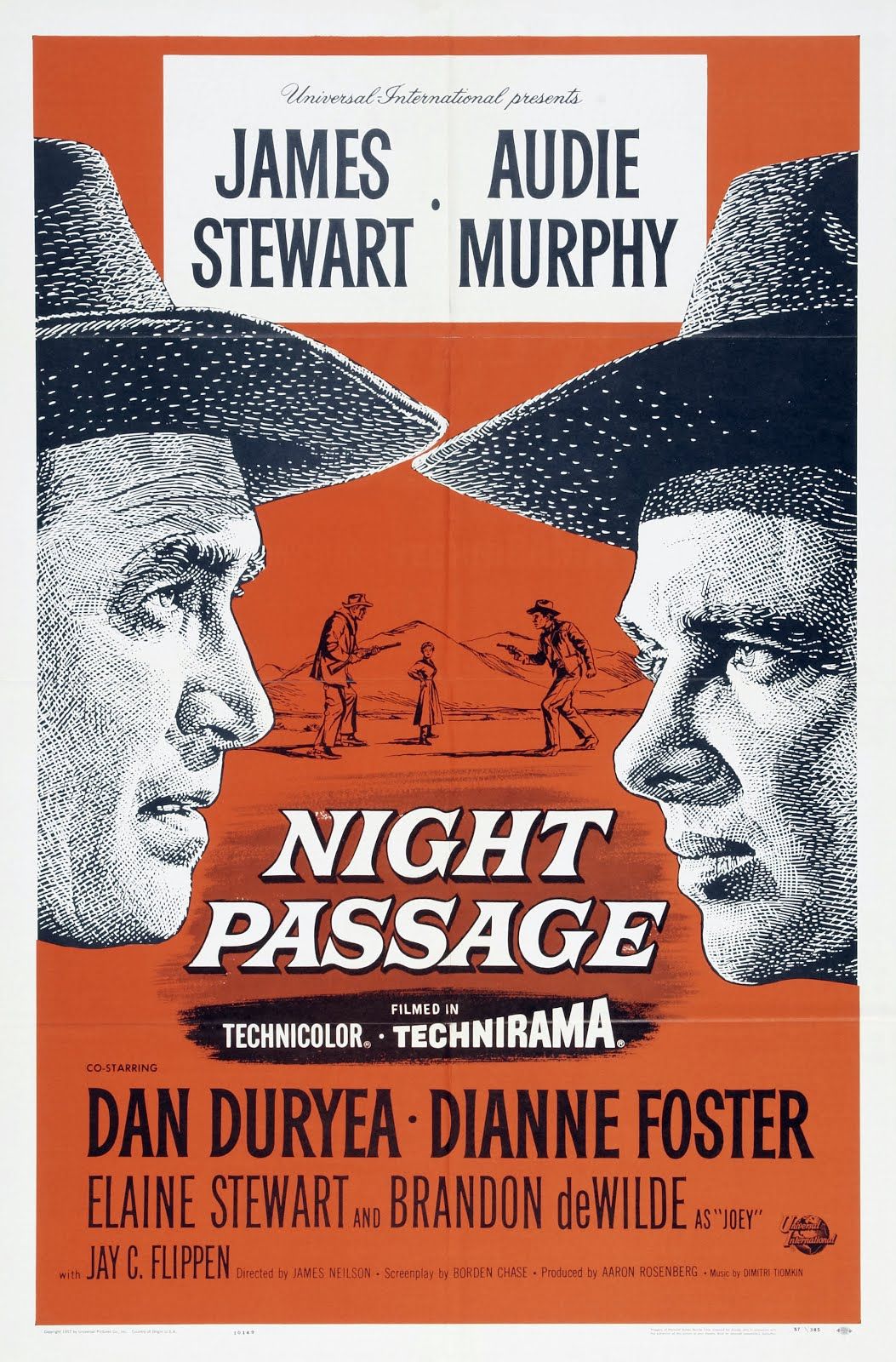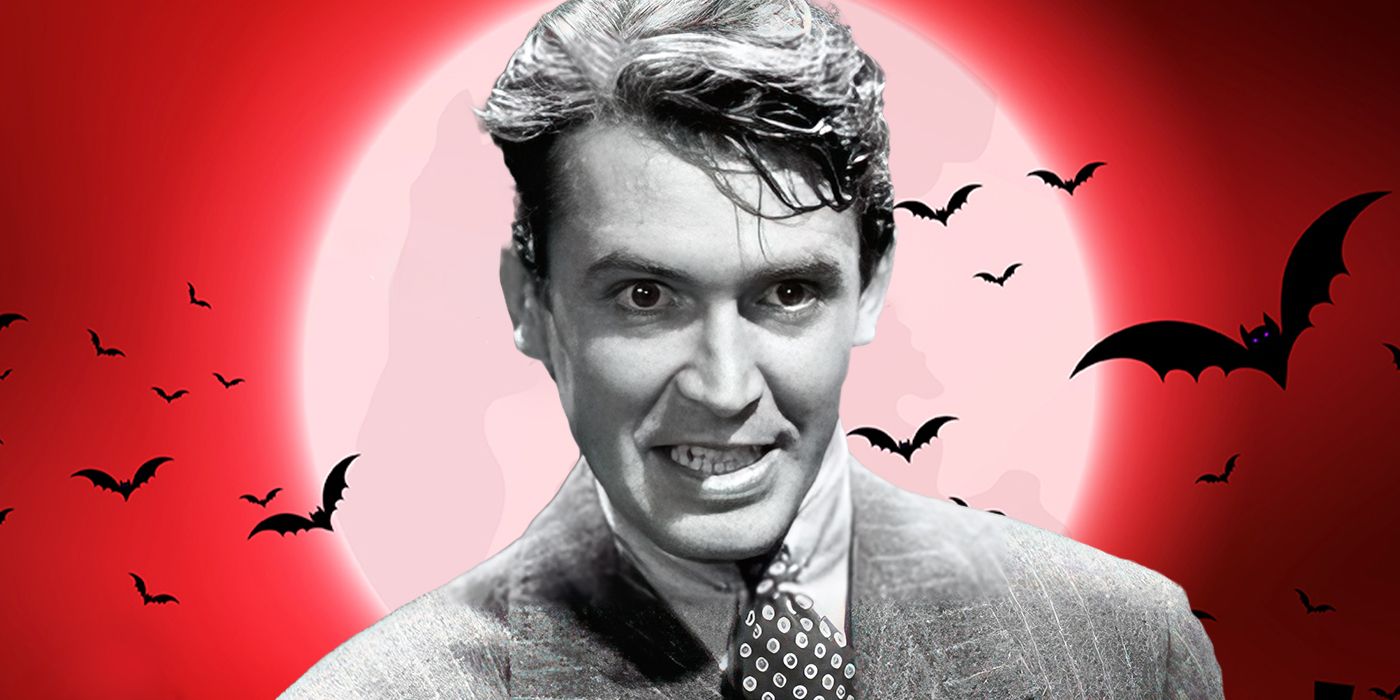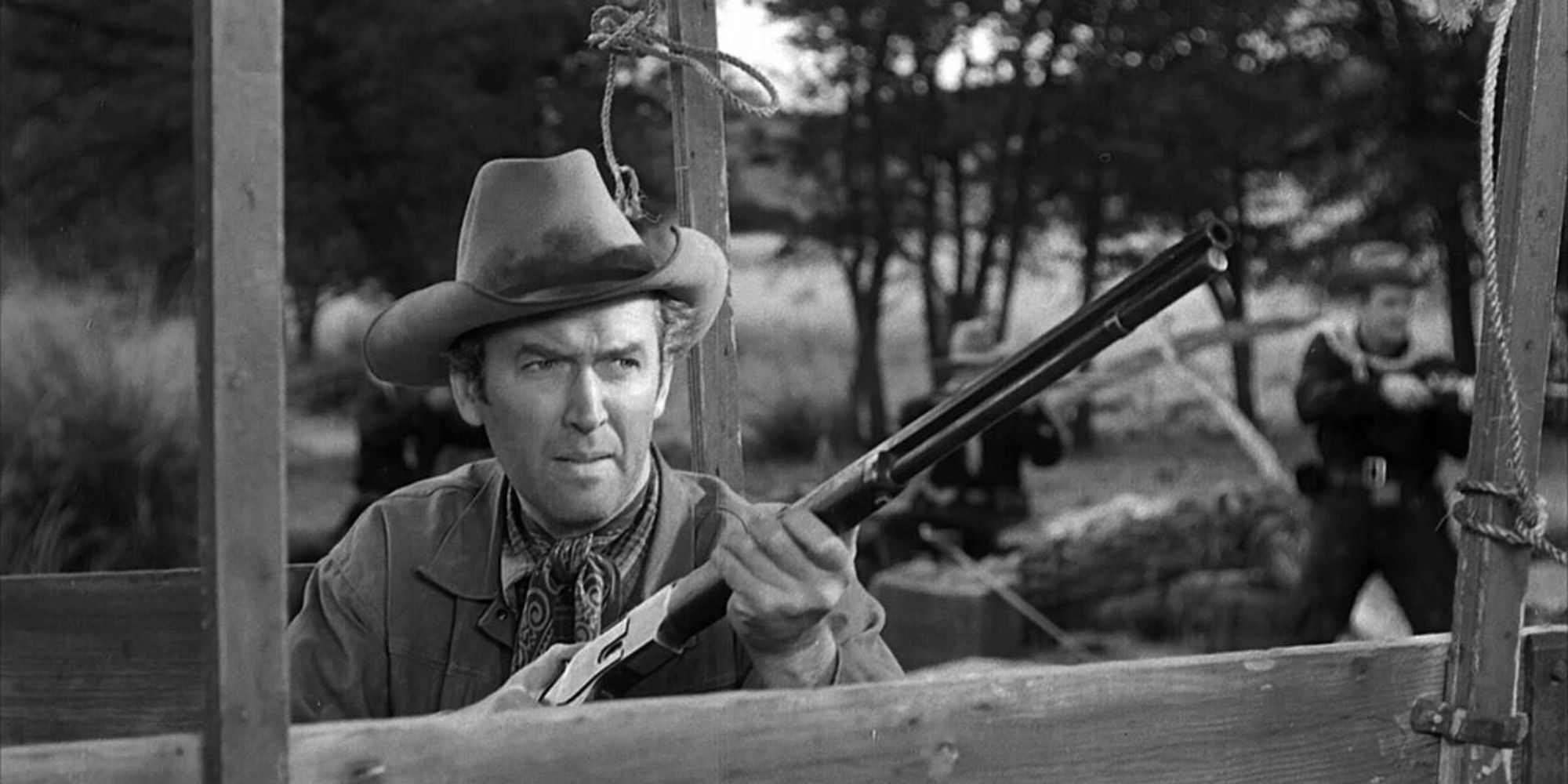The Big Picture
- The partnership between Jimmy Stewart and Anthony Mann produced eight remarkable films in just six years during the Golden Age of Westerns.
- Disagreements over the film Night Passage sparked a rift between the two, leading to the bitter end of their collaboration.
- Despite their falling out, both Stewart and Mann went on to have successful careers, with Stewart forming a working relationship with Alfred Hitchcock and Mann directing notable films like Man of the West.
Few collaborations have lasted as long in cinema as that of actor James Stewart and director Anthony Mann. The two legends of the big screen seemed inseparable in the final decade of the Golden Age of Westerns. Between them, they made eight films in six years, five of them Westerns. But disagreements before the onset of yet another partnership, which could have been their ninth, marked the culmination of Stewart and Mann's silver screen odyssey. An odyssey that began with Winchester ’73 in 1950 and ended with The Man From Laramie in 1955. Their sixth team-up attempt at having Mann showcase his signature Wild West violence, directing Stewart as he pumped bullets into his onscreen adversaries, ricocheted. Night Passage, the film they were to work on, ended up with only one-half of the duo, marking the bitter end of their Western magic-making together.
Released in 1957, Night Passage is based on the novel of the same name by Norman A. Fox and revolves around a fired railroadman, Grant McClaine (Stewart). Grant is hired to transport a $10,000 payroll in gold to a remote mining town, but as he ensures the safe delivery of money across a dangerous route in the Wild West, he faces a number of challenges. Despite being suspected of colluding with outlaws who are after the money, Grant also works to help his estranged brother, also known as The Utica Kid, played by Audie Murphy.

Night Passage
A fired railroadman is re-hired and entrusted to carry a $10,000 payroll in secret, even though he is suspected of being connected to outlaws.
- Run Time
- 90 minutes
- Studio
- Universal Pictures
- Director
- James Nielsen
- Release Date
- July 24, 1957
What Sparked the Rift Between Anthony Mann and Jimmy Stewart?
While Anthony Mann and Jimmy Stewart's partnership was evident in their onscreen collaborations, behind the scenes, things were souring up. As recounted in the biography, Jimmy Stewart: The Truth Behind the Legend by film historian Michael Munn, Mann's disparaging remark about how Night Passage was "trash" sparked a rift between him and Stewart. Mann is said to have considered the movie's story as below standard and felt Stewart was only insisting on making the film because it would afford him the opportunity to play the accordion, an instrument he had been accustomed to since childhood. This remark, according to Munn's accounts, infuriated Stewart so much that he never spoke to Mann again.
However, surprisingly, Mann's Man of the West, the film he made after passing on the opportunity to direct Night Passage, which was released shortly afterward, was not that different in terms of story. The clear distinction between the two films lies in Man of the West being a more Mann-esque narrative — a character-driven film with a somber, introspective tone, exploring themes of violence, redemption, and good versus evil. It was a gritty and largely realistic Western, whereas Night Passage, eventually directed by James Nielson, was an exciting, action-packed, lighthearted, adventurous Western with still some Mann-esque elements, particularly in the ending.

Jimmy Stewart Played a Cold-Blooded Killer in This Oscar-Nominated Murder Mystery
This forgotten Stewart film proved pivotal to the Hollywood icon's career.
In Mann's own words, as expressed in a 1967 interview with the BBC, ''You never show personal ambitions in glorification. Very few people are exalted. I don't think I have ever ended any of my films with exaltation. (The protagonist always) pretty much (ends up) tired that he's done the job.'' This characterization is evident in Jimmy Stewart's portrayal in their shared narratives, and even Grant McLaine in Night Passage is left weary and disillusioned after confronting his villainous brother, Audie Murphy's Utica Kid, with the brother dying while protecting him.
What Was Wrong With 'Night Passage'?
This characterization could be confusing if you haven't seen the Western films that the two collaborators made. Their films often feature slight variations on similar themes. In Winchester '73, the movie that introduced the duo's cinematic magic to the world in 1950, Jimmy Stewart's character hunts down his villainous brother. However, unlike in the problematic Night Passage, where blood ties ultimately prove stronger as his villainous brother audaciously betrays his gang friends to save him, Stewart's Lin McAdam in Winchester '73 is driven by a relentless pursuit of vengeance for two reasons: Firstly, to punish his brother for killing their father, and secondly, to reclaim his prized gun, the titular weapon of the film. In this role, Stewart breaks away from his usual dapper typecast, instead portraying a character willing to cross the line and kill his brother in the pursuit of retribution. By casting him against type and challenging him to explore noir-like roles he was unfamiliar with, Mann revitalized the 1941 Best Actor Oscar winner's career and marked the beginning of an extraordinary collaboration that would result in eight remarkable films within six years.
Theirs was a great journey together. However, aside from Munn's bad-script-story account, Munn writes that Mann also had reservations about casting Audie Murphy as Stewart's onscreen brother in the film. The lauded director particularly questioned the believability of the casting, especially given their physical differences. Mann also had doubts about Murphy's acting abilities, considering him not quite up to the task of an A-list role. While Stewart and Murphy had earned respect in and out of Hollywood following their heroic wartime service and subsequent acting careers, their acting achievements were vastly different. Stewart had overcome his post-war self-esteem issues and found success, particularly in his collaborations with Mann. In contrast, Murphy was still basking in the glory of his larger-than-life status as a national hero. Murphy's immediate acting credits before Night Passage, except for the World War II biopic To Hell and Back, in which he played himself, were unremarkable. However, in Night Passage, Murphy's character as the Utica Kid stands out as perhaps the most memorable, a testament to the actor's captivating portrayal of the complex, likable villain.
Jimmy Stewart and Anthony Mann's Partnership Is One of Hollywood's Best
Rarely do we see an elite actor and director collaborate on so many projects that define cinema in such a short time as Jimmy Stewart's and Anthony Mann's partnership. The two had first teamed up on stage where Mann was directing plays. As per Mann's BBC interview, it was through these stage projects that he met Academy Award-winning Gone With the Wind producer, David O. Selznick, among others, who made his interest in moving pictures peak. According to Munn, Stewart, who was disillusioned about his previous roles, and was low on confidence following a streak of unsuccessful films since he had won an Oscar, had signed a deal with Universal Pictures that made him decide his director for films he was starring in. This enabled him to earn commissions from the films, as well. When Winchester 73 came along, Stewart decided to go with his former stage collaborator as his director. Winchester '73 followed Stewart's character as he sought revenge against his brother who had killed their father, as well as taking away his prized rare ''Winchester '73'' gun. Even though Winchester '73 was not Mann's first Western (he had already made Devil’s Doorway in the same year), it marked the beginning of a journey that cemented his and Stewart's legacy as some of the most influential figures in the Golden Age of Hollywood.
Two years later, in 1952, the duo embarked on Bend of the River, an early iteration of Night Passage where Stewart's character leads a wagon train to Oregon, only to be robbed by his former outlaw partner. A year later, they reunited for The Naked Spur, one of Mann's finest works, featuring Stewart as a bounty hunter escorting a killer through the treacherous Rocky Mountains. The two cinematic legends ventured beyond the Wild West for three films: Thunder Bay, The Glenn Miller Story, and Strategic Air Command. They also made ''outdoor dramas,'' as they called their Western films in their promos, collaborating on The Far Country, a literal cowboy film about two cattlemen, and, finally, The Man From Laramie, another hot film about revenge.
Stewart and Mann's collaborative Westerns subverted the genre, earning acclaim for their innovative use of technology to visually capture the expansiveness of the Wild West and their crafting of intricate, nuanced characters with depth, despite subtle variations. The films were also renowned for their distinguishable violence, something Mann told the BBC was an inevitable element in crafting great Western dramas.
What Happened to Anthony Mann and James Stewart After the 'Night Passage' Fall-Out?
While disagreements between Anthony Mann and Jimmy Stewart over the production of Night Passage marked the end of the road for the convergence of the two talented artists, it wasn't the last we would hear of them separately. Mann went on to make Men in War starring Robert Ryan and Aldo Ray; The Tin Star, which had Henry Fonda opposite Anthony Perkins in 1957, among other films, before closing his Western greats with a box office failure, Man of the West, that has since become a cult classic. Stewart, on the other hand, made several other films, among them Westerns How the West Was Won, The Man Who Shot Liberty Valance, and Cheyenne Autumn. Stewart also formed another formidable working relationship with Alfred Hitchcock.
While we may never know for sure why artists who seemed so perfect working together as Mann and Stewart fell out, their legacy in the Western genre is sealed. Their collaboration on Westerns is perhaps only second to John Ford and John Wayne's. Together, Mann and Stewart gifted us with some of the most enduring classics of the Western genre. Their cinematic collaborations will forever be cherished by moviegoers, serving as a timeless reminder that when such greats come together with camera lenses, cinematic magic happens.
Night Passage is available to stream on Roku in the U.S.


